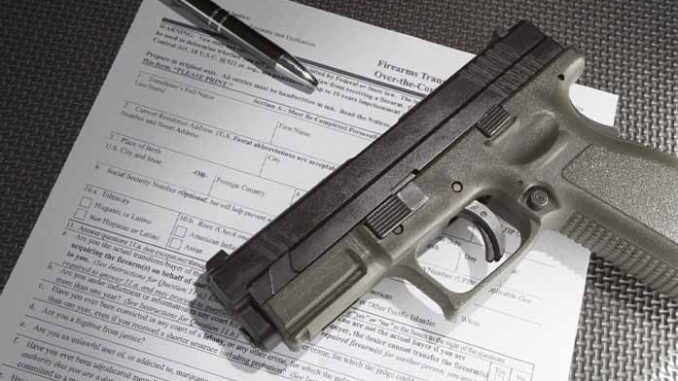
On Friday, newly-elected Attorney General, Kris Mayes, withdrew Arizona’s lawsuit which challenged an effort by the federal government to regulate so-called “Ghost Guns.”
Arizona’s former attorney general, Mark Brnovich, and West Virginia Attorney General Patrick Morrisey led a coalition of 20 states urging the Bureau of Alcohol, Tobacco, Firearms and Explosives (ATF) to reconsider and reject a proposed rule that they believe weakens the Second Amendment by giving the ATF power to regulate firearm parts.
“I believe this Rule is within the ATF’s authority and provides much-needed regulation of ghost guns, which have proliferated in recent years and have made law enforcement’s job more difficult and dangerous,” said Mayes.
However, the Brnovich coalition argued that the proposed rule significantly expands the regulation of firearm parts beyond the scope of ATF’s authority under the Gun Control Act of 1968. ATF is only authorized to regulate complete firearms and complete receivers–not incomplete firearms or receivers (with the exception of machine guns).
In their letter, the attorneys general explained how courts have ruled against agencies that have attempted to promulgate regulations that broaden the definition of statutory terms beyond the scope of Congress’s intent.
The proposed rule classifies any firearm part that “provides housing or structure for any fire control component” as a receiver, and thus equal to a complete firearm under the law. Each part, under the proposed rule, would need to bear a serial number regardless of how small or impractical. ATF itself recognizes the risk of creating such an unmanageable system, and thus would grant itself the discretion to ultimately determine which part falls within the definition.
The coalition further argued that ATF did not fully consider the costs of changing a longstanding policy upon which many people and businesses rely. It cites the ATF’s own analysis in stating the rule would force at least 35 businesses to cease operation or significantly scale down their activities. The attorneys general, however, argue the bureau underestimates the financial loss contending it would far exceed the rule’s $1.1 million estimate.
Arizona and other parties who joined the lawsuit were unable to get an injunction in District Court and appealed to the Eighth Circuit, where the case is now pending.
